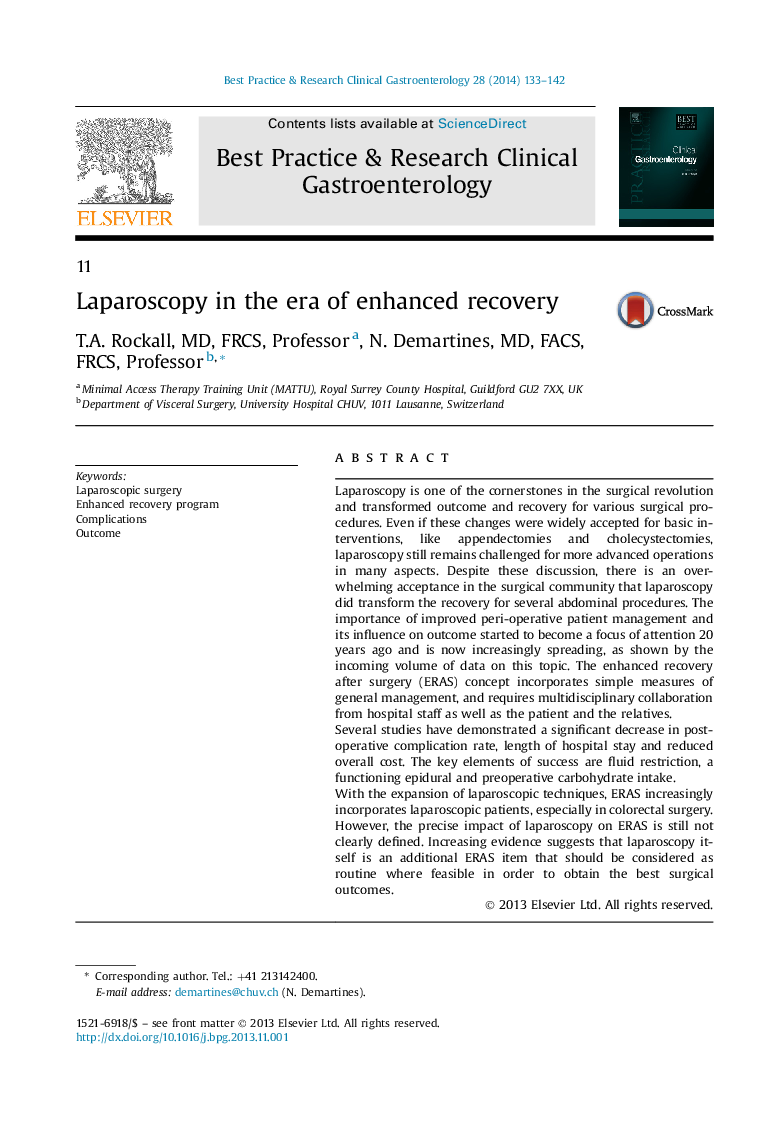| Article ID | Journal | Published Year | Pages | File Type |
|---|---|---|---|---|
| 3254452 | Best Practice & Research Clinical Gastroenterology | 2014 | 10 Pages |
Laparoscopy is one of the cornerstones in the surgical revolution and transformed outcome and recovery for various surgical procedures. Even if these changes were widely accepted for basic interventions, like appendectomies and cholecystectomies, laparoscopy still remains challenged for more advanced operations in many aspects. Despite these discussion, there is an overwhelming acceptance in the surgical community that laparoscopy did transform the recovery for several abdominal procedures. The importance of improved peri-operative patient management and its influence on outcome started to become a focus of attention 20 years ago and is now increasingly spreading, as shown by the incoming volume of data on this topic. The enhanced recovery after surgery (ERAS) concept incorporates simple measures of general management, and requires multidisciplinary collaboration from hospital staff as well as the patient and the relatives.Several studies have demonstrated a significant decrease in postoperative complication rate, length of hospital stay and reduced overall cost. The key elements of success are fluid restriction, a functioning epidural and preoperative carbohydrate intake.With the expansion of laparoscopic techniques, ERAS increasingly incorporates laparoscopic patients, especially in colorectal surgery. However, the precise impact of laparoscopy on ERAS is still not clearly defined. Increasing evidence suggests that laparoscopy itself is an additional ERAS item that should be considered as routine where feasible in order to obtain the best surgical outcomes.
